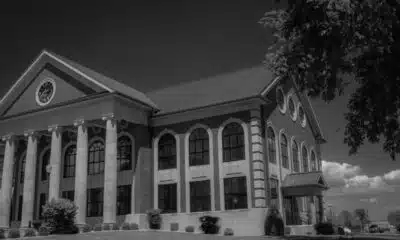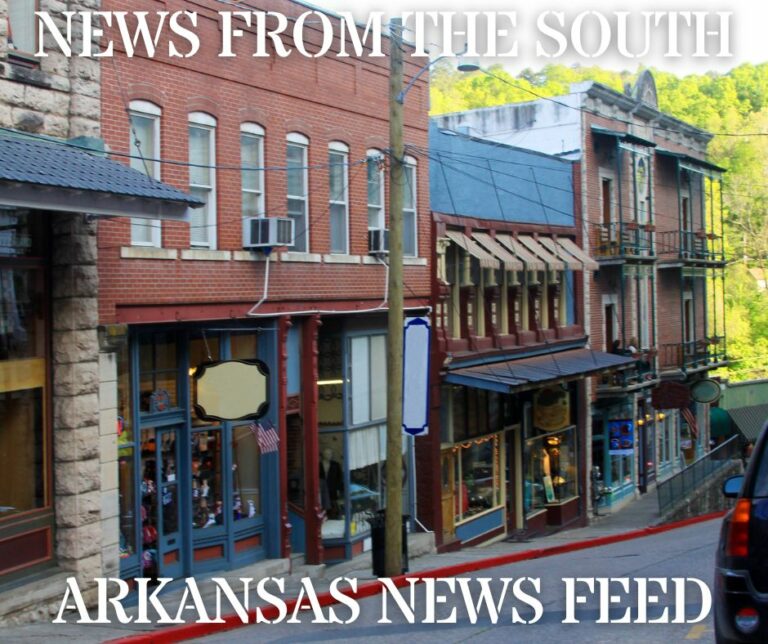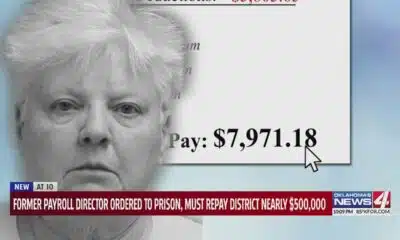News from the South - North Carolina News Feed
Mission Hospital’s immediate jeopardy sanction highlighted a crisis in care • Asheville Watchdog
Editor’s Note: As 2024 comes to a close, Asheville Watchdog staffers take you back and inside their most memorable stories and news events of the year.
I was driving down I-26 on Jan. 11 when I got the call.
The U.S. Centers for Medicare & Medicaid Services had a document I’d been hunting for months, and I would possess it within minutes.
The caller, a CMS employee, told me he had a letter from the North Carolina Department of Health and Human Services informing CMS of its investigation of Mission Hospital and its recommendation that the hospital be placed in immediate jeopardy, the most severe sanction it could face.
State and federal investigators had descended on the hospital in November and December 2023, interviewing nurses, doctors and administrators about the quality of care being provided to patients.
I knew the investigations were happening, but I didn’t know how severe their findings would be. I certainly didn’t expect a finding of immediate jeopardy, which CMS defines this way:
“Immediate Jeopardy (IJ) represents a situation in which entity noncompliance has placed the health and safety of recipients in its care at risk for serious injury, serious harm, serious impairment or death.”
Unless a hospital fixes the conditions that brought about the immediate jeopardy, it faces the loss of its Medicare and Medicaid funding, which can jeopardize its financial viability. As we have reported, the majority of patients in western North Carolina are on Medicare or Medicaid, or are uninsured.
I called my editors and we started an all-hands-on-deck session of calling sources, writing and editing.
Within a few hours of my receiving the call from CMS, we published our story, making Asheville Watchdog the first media outlet to break this major news.
“We have taken those results seriously, and there are no excuses for our patients receiving anything other than exceptional care,” Mission Health spokesperson Nancy Lindell said in the story. “This is not the standard of care we expect, nor that our patients deserve, and we will work diligently to improve.”
On Feb. 1, CMS made it official with its own letter to HCA North Carolina Division President Greg Lowe. The letter stated that the hospital had 23 days to issue a “plan of correction,” which would need to spell out how it planned to fix the conditions that brought about immediate jeopardy.
On Feb. 15, a scathing 384-page report from CMS detailing what caused the failures was released. Again, The Watchdog was the first to report the findings: 18 people had been harmed, including four who died between 2022 and 2023, all because of violations of federal standards of care. I described the report this way in my story:
It spotlights not only patient deaths and long delays in care but also a lack of available rooms, a lack of governing bodies “responsible for the conduct of the hospital,” and multiple leadership failures.
Following a Feb. 23 visit to Mission by state and federal inspectors, the immediate jeopardy finding was lifted. But a coalition of prominent physicians and patient advocates blasted Mission’s plan of correction, writing a letter to NCDHHS Chief Deputy Secretary Mark Benton in which they demanded to know why the plan didn’t require the hiring of more staff.
Mission’s challenges weren’t over. It still risked losing federal funding if it didn’t address issues in key areas: governing body, patient’s rights, quality assessment and performance improvement programs, nursing services, laboratory services and emergency services. The hospital was ultimately found to be in compliance in late May.
The Watchdog’s reporting on immediate jeopardy was just one component of our coverage of Mission Hospital in 2024. Throughout the year, we investigated numerous angles about the largest hospital in western North Carolina. Many of our stories have been grim and tough to report.
A wave of departures
Nurses and doctors have left the hospital, seeking more promising job opportunities. The Watchdog has investigated the departure of neurologists, urologists, cancer medication doctors, pharmacists, hospitalists, registered nurses and others. We’ve spoken to patients, chaplains, administrators and union leaders.
I’ve spoken with many health care workers who say they feel hamstrung by their circumstances. They say they’re unable to leave because they’ve established roots here yet at the same time don’t want to stay because they are burned out or are forced to make compromises, many related to staffing issues at the hospital.
In July, a broad coalition of physicians, patient advocates, clergy and Democratic state Sen. Julie Mayfield launched Reclaim Healthcare WNC. The initiative calls for HCA to relinquish Mission so it can become a nonprofit hospital, as it was before the Nashville company bought Mission Health in 2019 for $1.5 billion.
Our reporting shows that nurses and doctors are working hard through the tumult to give the best care possible to our community. They worked through enormous challenges following Tropical Storm Helene, with HCA supplying a high level of support.
Some still feel as if the company will continue to cut where it can.
Some of the last stories I wrote in 2024 revealed Mission’s plan to close the region’s only long term acute care hospital, Asheville Specialty Hospital, and to raze the St. Joseph’s Hospital campus, whose origins date back more than a century and which has been expensive for Mission to maintain.
About a year ago, I wrote a year-in-review piece about my investigation into the hospital’s emergency room procedures, which nurses said had endangered patients. The story included this statement about Mission:
Not everything is clear, but after two years of reporting, I believe that whatever is happening there, it’s seismic.
I didn’t realize how accurate that statement would be.
Asheville Watchdog is a nonprofit news team producing stories that matter to Asheville and Buncombe County. Andrew R. Jones is a Watchdog investigative reporter. Email arjones@avlwatchdog.org. The Watchdog’s local reporting during this crisis is made possible by donations from the community. To show your support for this vital public service go to avlwatchdog.org/support-our-publication/.
Related
The post Mission Hospital’s immediate jeopardy sanction highlighted a crisis in care • Asheville Watchdog appeared first on avlwatchdog.org
News from the South - North Carolina News Feed
In Depth with Dan: Answering viewer questions about flesh-eating bacteria, digital licenses
SUMMARY: In this Monday mailbag, Dan addresses viewer questions on three topics. First, North Carolina’s Vibrio bacteria risk in summer coastal waters: cooked shellfish is safe, but raw consumption is risky due to bacteria concentrating in oysters. Second, digital driver’s licenses in North Carolina face delays; although legalized in 2023, full rollout may not occur until 2026, with other states also lagging behind. Lastly, Dan explains flood-damaged vehicles after recent storms: flooded cars must be branded as such, but scams occur. He shares tips to spot flood damage when buying used cars, emphasizing caution and thorough inspection.
WRAL anchor/reporter Dan Haggerty answered viewer questions about a flesh-eating bacteria in North Carolina and the legalization of digital driver’s licenses.
News from the South - North Carolina News Feed
The latest update on Tropical Storm Erin
SUMMARY: Tropical Storm Erin is forecast to become a Category 1 hurricane by Thursday and remain well out to sea through Saturday, near the Lesser Antilles northeast of Puerto Rico. Models show it moving west, then curving north toward Bermuda or Florida, but uncertainty remains high beyond next week. The American and European models suggest it could pass between Bermuda and Hatteras, causing higher surf midweek. Due to large forecast errors, the storm’s exact path is unclear, ranging from north of New York to the Florida panhandle. Residents should prepare hurricane kits and stay updated, with clearer guidance expected by Thursday or Friday.
Will Erin cause problems for the East Coast? Here’s the latest on Monday evening.
https://abc11.com/post/tracking-tropics-tropical-storm-erin-forms-eastern-tropical-atlantic-cabo-verde-islands/17499988/
Download: https://abc11.com/apps/
Like us on Facebook: https://www.facebook.com/ABC11/
Instagram: https://www.instagram.com/abc11_wtvd/
Threads: https://www.threads.net/@abc11_wtvd
TIKTOK: https://www.tiktok.com/@abc11_eyewitnessnews
X: https://x.com/ABC11_WTVD
News from the South - North Carolina News Feed
Body of missing NC teen found in Florida, family says
SUMMARY: The body of missing North Carolina teen Gio Gio was found in Bradenton, Florida, confirmed by his family. Originally, Gio Gio was supposed to be picked up by relatives after meeting cousins in Florida, but he disappeared after texting his mother for help. His family’s private investigators, not the police, discovered his body near I-75 after police had initially searched the area. Gio Gio’s mother expressed her heartbreak on Facebook, calling it every parent’s worst nightmare. The investigation continues, focusing on the timeline after Gio Gio entered the car with his cousins. An autopsy is pending, with no immediate signs of foul play.
The body of Giovanni Pelletier was found in a retention pond, authorities said, and his mom is living “every parent’s worst nightmare.”
https://abc11.com/post/giovanni-pelletier-body-missing-18-year-old-north-carolina-found-pond-where-last-seen-family-says/17483056/
Download: https://abc11.com/apps/
Like us on Facebook: https://www.facebook.com/ABC11/
Instagram: https://www.instagram.com/abc11_wtvd/
Threads: https://www.threads.net/@abc11_wtvd
TIKTOK: https://www.tiktok.com/@abc11_eyewitnessnews
X: https://x.com/ABC11_WTVD
-
News from the South - Oklahoma News Feed3 days ago
Former payroll director ordered to prison, must repay district nearly $500,000
-
News from the South - North Carolina News Feed6 days ago
Two people unaccounted for in Spring Lake after flash flooding
-
News from the South - Tennessee News Feed6 days ago
Trump’s new tariffs take effect. Here’s how Tennesseans could be impacted
-
News from the South - Texas News Feed4 days ago
Jim Lovell, Apollo 13 moon mission leader, dies at 97
-
News from the South - Missouri News Feed5 days ago
Man accused of running over Kansas City teacher with car before shooting, killing her
-
News from the South - Oklahoma News Feed6 days ago
Tulsa, OKC Resort to Hostile Architecture to Deter Homeless Encampments
-
News from the South - Arkansas News Feed7 days ago
Why congressional redistricting is blowing up across the US this summer
-
News from the South - Arkansas News Feed5 days ago
Arkansas courts director elected to national board of judicial administrators












































